The Dutch Shepherd is a highly intelligent and versatile dog breed that has been gaining popularity in recent years. This breed is known for its high energy levels and strong work ethic, making it an excellent choice for active individuals or families. In this article, we will explore the Dutch Shepherd Dog characteristics: and what makes them unique.
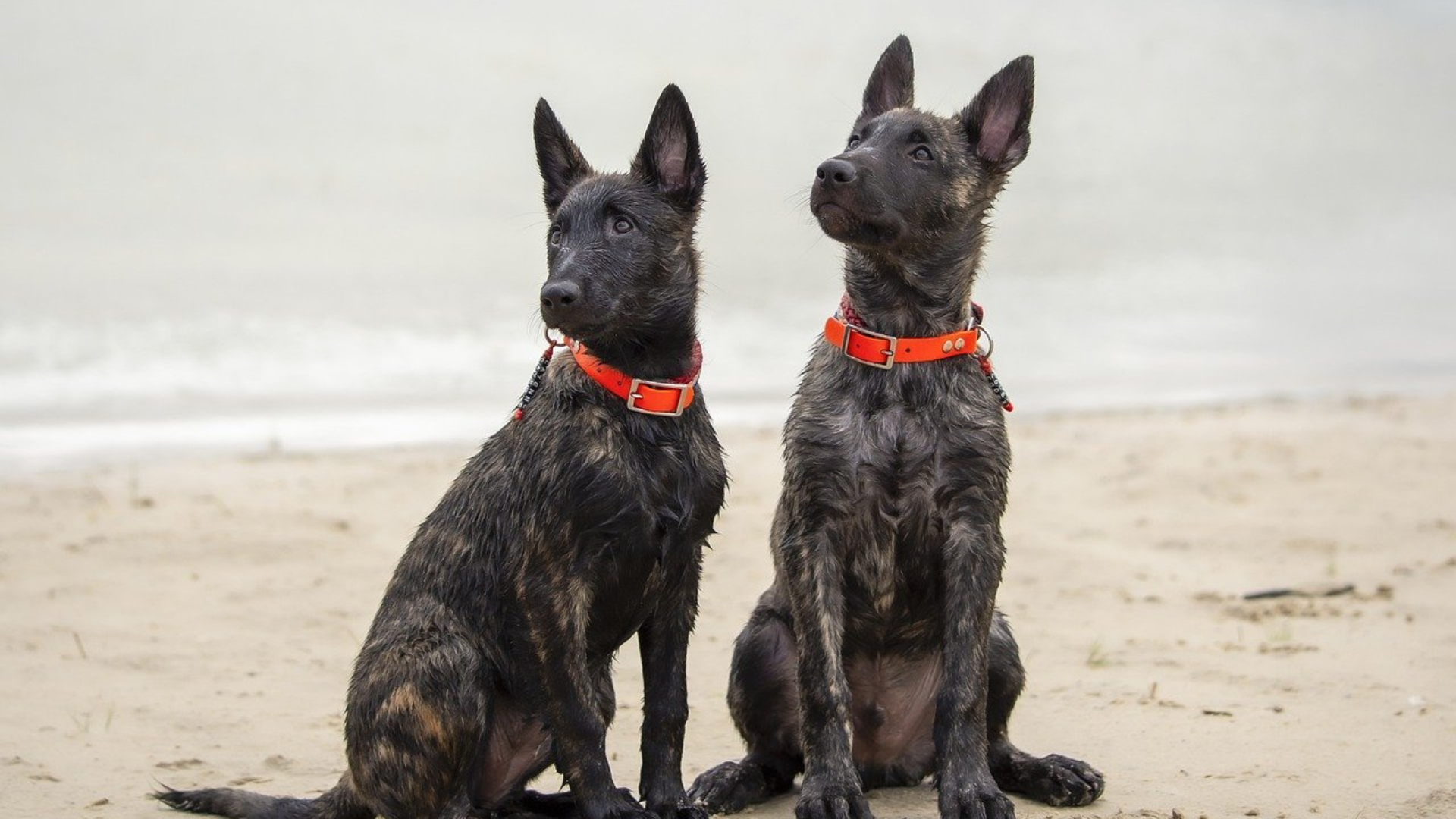
One of the most distinctive features of the Dutch Shepherd is their coat. This breed comes in three different varieties: short-haired, long-haired, and wire-haired. The coat can be a range of colors, including brindle, fawn, and black. Dutch Shepherds are also known for their athletic build and strong muscles, which allow them to excel in various activities such as agility, obedience, and herding.
Aside from their physical characteristics, Dutch Shepherds are also known for their intelligence and trainability. They are quick learners and excel in obedience training, making them an excellent choice for working roles such as police or search and rescue dogs. However, they also require plenty of mental stimulation and exercise to prevent boredom and destructive behavior. In the following sections, we will dive deeper into the unique characteristics of the Dutch Shepherd and what makes them stand out among other dog breeds.
Breed Origins and History
Netherlands Heritage
The Dutch Shepherd dog breed originates from the Netherlands, where they were primarily used as herding dogs for sheep and other livestock. The breed was known for its agility and intelligence, which made them ideal for working on farms and ranches.
Breed Development
The Dutch Shepherd dog breed was developed in the late 19th century by crossing several different breeds, including the Belgian Shepherd, German Shepherd, and Dutch Sheepdog. The breed was developed to create a versatile working dog that could handle a variety of tasks, including herding, guarding, and police work.
The Dutch Shepherd dog breed was recognized by the Dutch Kennel Club in 1898, and the first breed standard was established in 1914. The breed was also recognized by the FCI (Fédération Cynologique Internationale) in 1959.
Today, the Dutch Shepherd dog is still used as a working dog in many parts of the world, including the Netherlands, Belgium, and the United States. They are known for their intelligence, loyalty, and versatility, and are often used as police dogs, search and rescue dogs, and service dogs for individuals with disabilities.

Physical Characteristics
Size and Weight
The Dutch Shepherd is a medium-sized dog breed, with males typically standing at 22-25 inches tall and weighing between 50-70 pounds, while females are slightly smaller, standing at 21-24 inches tall and weighing between 40-60 pounds. They are well-muscled and agile, with a strong and athletic build that allows them to excel in various physical activities.
Coat Types
The Dutch Shepherd has three distinct coat types: short, long, and rough. The short-haired variety has a dense, smooth coat that requires minimal grooming, while the long-haired variety has a longer, wavy coat that requires more maintenance. The rough-haired variety has a thick, wiry coat that provides excellent protection against the elements.
Color Variations
The Dutch Shepherd comes in a variety of colors, including brindle, red, silver, gold, and black. Brindle is the most common color, with a mixture of black and brown stripes. The red variety can range from a light golden color to a deep mahogany, while the silver and gold varieties have a shiny, metallic sheen to their coat. The black variety is solid black, with no other color present.
Overall, the Dutch Shepherd is a highly versatile and capable dog breed, with a strong and athletic build, a variety of coat types, and a range of color variations. Their physical characteristics make them well-suited for a variety of activities, including herding, agility, obedience, and search and rescue.
Temperament and Behavior
Personality Traits
Dutch Shepherds are known for their loyal and intelligent nature. They are alert and independent, making them great watchdogs. However, they can also be affectionate towards their family members.
These dogs have a strong work ethic and are happiest when given a job to do. They are highly trainable and excel in obedience, agility, and other dog sports.
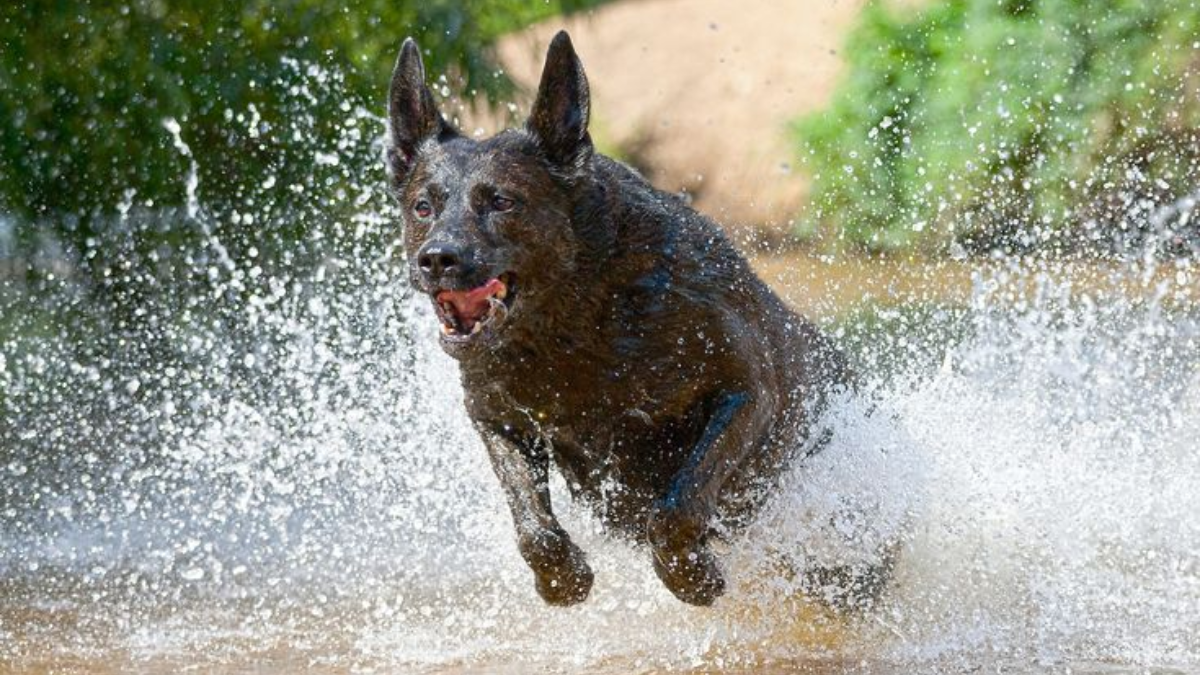
Interaction with Children and Pets
Dutch Shepherds can be great family dogs, but they may not be the best fit for families with young children. These dogs have a high energy level and can be quite boisterous, which may not be suitable for small children.
They can get along well with other pets, including other dogs if socialized properly from a young age. However, their herding instincts may cause them to chase after smaller animals, so it is important to supervise their interactions.
Overall, Dutch Shepherds are confident and knowledgeable dogs with a neutral and clear temperament. They make great companions for active individuals or families who can provide them with plenty of exercise and mental stimulation.
Health and Lifespan
Common Health Issues
Dutch Shepherds are generally a healthy breed, but like all dogs, they are prone to certain health issues. One of the most common health issues that Dutch Shepherds face is hip dysplasia. This is a genetic condition that affects the hip joint and can cause pain, lameness, and arthritis. Elbow dysplasia is another genetic condition that can affect Dutch Shepherds. It occurs when the elbow joint doesn't develop properly and can cause pain, lameness, and arthritis.
Another health issue that Dutch Shepherds may face is goniodysplasia. This is a condition that affects the eyes and can lead to glaucoma. It is important to have regular eye exams for your Dutch Shepherd to catch any potential issues early on.
Preventive Care
To keep your Dutch Shepherd in good health, it is important to provide them with regular preventive care. This includes regular exercise, a healthy diet, and routine veterinary check-ups. Dutch Shepherds are an active breed and require plenty of exercise to keep them healthy and happy. A balanced diet is also important to ensure that they are getting all of the necessary nutrients.
Regular veterinary check-ups are important for catching any potential health issues early on. Your veterinarian may recommend regular hip and elbow X-rays to check for dysplasia, as well as regular eye exams to check for goniodysplasia.
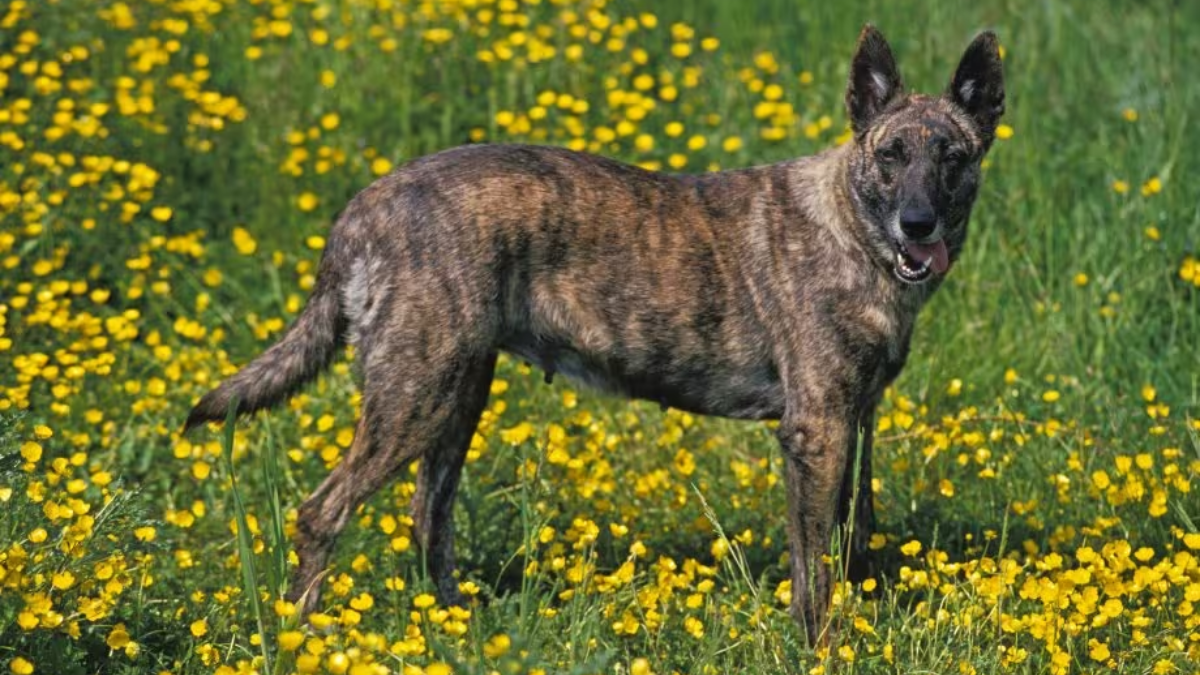
The average lifespan of a Dutch Shepherd is around 12-14 years. By providing them with regular preventive care and catching any potential health issues early on, you can help ensure that your Dutch Shepherd lives a long and healthy life.
Grooming and Care
Grooming Needs
Dutch Shepherds have a short, dense coat that requires minimal grooming. They do not shed excessively, but they do shed seasonally. During shedding season, it is recommended to brush them once a week to remove loose hair and prevent matting. A slicker brush or a grooming mitt can be used to remove dead hair and keep their coat shiny.
Their ears should be checked regularly for signs of infection or debris buildup. If the ears appear red, swollen or have an unpleasant odor, it is recommended to consult a veterinarian.
Their nails should be trimmed regularly to prevent overgrowth and discomfort. It is recommended to use a nail clipper specifically designed for dogs and to avoid cutting the quick, which is the blood vessel that runs through the nail.
Dietary Considerations
Dutch Shepherds require a balanced diet that provides them with the necessary nutrients to maintain their health and energy levels. It is recommended to feed them high-quality dog food that is rich in protein, as they are an active breed that requires a lot of exercise.
It is important to avoid overfeeding them, as they can easily become overweight. Overweight dogs are at a higher risk of developing health problems such as joint issues, heart disease, and diabetes.
In addition to their regular meals, it is recommended to provide them with healthy treats such as carrots, apples, or pieces of cooked chicken. It is important to avoid giving them human food that is high in fat, salt, or sugar, as it can be harmful to their health.
Overall, Dutch Shepherds are a low-maintenance breed that requires minimal grooming and a balanced diet to maintain their health and well-being.
Exercise and Training
Activity Requirements
Dutch Shepherds are a highly active breed that requires regular exercise to stay healthy and happy. They have a high energy level and need daily physical activity to burn off excess energy. A lack of exercise can lead to destructive behavior, such as chewing and digging.
The Dutch Shepherd is an excellent companion for outdoor enthusiasts and active families. They enjoy hiking, running, and swimming and can easily keep up with their owners. They also excel in various dog sports, such as agility, obedience, and tracking.
Training Techniques
Dutch Shepherds are intelligent and highly trainable. They respond well to positive reinforcement training techniques, such as reward-based training and clicker training. They are sensitive to their owner's emotions and respond best to gentle, consistent training methods.
Mental stimulation is also essential for Dutch Shepherds. They enjoy learning new skills and solving puzzles, which helps keep their minds active and engaged. Training sessions should be short and frequent to prevent boredom and frustration.
It's crucial to start training Dutch Shepherds at a young age. Early socialization and obedience training can help prevent behavioral issues, such as aggression and separation anxiety.
In summary, Dutch Shepherds require regular exercise and mental stimulation to stay healthy and happy. Positive reinforcement training techniques and early socialization are essential for their development. With the right care and training, Dutch Shepherds make excellent companions for active families and outdoor enthusiasts.
Working and Performance
Dutch Shepherds are known for their exceptional working and performance abilities. They were originally bred as herding dogs, but their intelligence, versatility, and athleticism have made them excel in various fields.
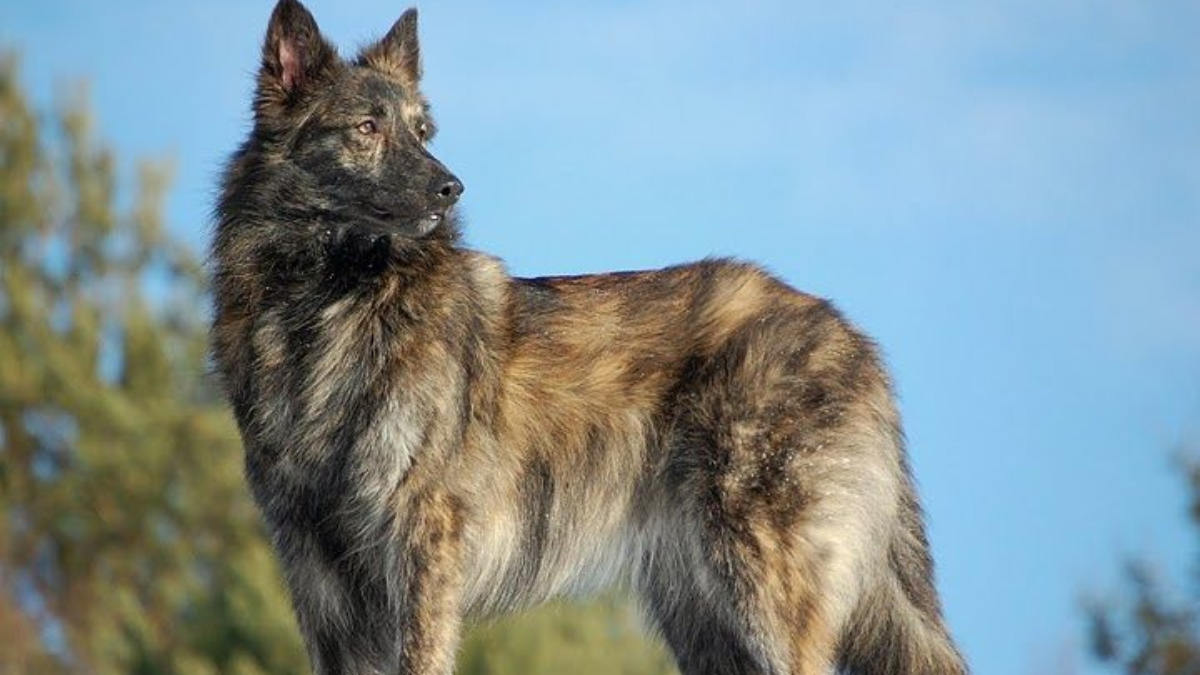
Herding and Farming
As herding dogs, Dutch Shepherds have an instinct to control and move livestock. They are agile and quick, making them ideal for working on farms and ranches. They are known to be independent thinkers and problem solvers, which can be a valuable trait when working with livestock.
Sports and Competitions
Dutch Shepherds are popular in various dog sports and competitions. Their athleticism, intelligence, and trainability make them ideal for agility, obedience, and tracking events. They are also known to excel in frisbee competitions due to their high energy and drive.
Service and Law Enforcement
Dutch Shepherds are often used in service and law enforcement roles due to their intelligence, loyalty, and work ethic. They are commonly used as police dogs, military dogs, and search and rescue dogs. They are also trained to detect drugs, explosives, and other contraband.
In conclusion, Dutch Shepherds are highly versatile and capable working dogs. They excel in various fields, including herding, dog sports, and service and law enforcement roles. Their intelligence, athleticism, and trainability make them a valuable asset in any working environment.
Breeders and Adoption
Choosing a Reputable Breeder
When looking for a Dutch Shepherd Dog, it is important to choose a reputable breeder. A reputable breeder will be knowledgeable about the breed and its characteristics and will be able to provide information about the dog's lineage and health history. They will also be willing to answer any questions you have and allow you to meet the puppy's parents.
The Dutch Shepherd Dog Club of America is a good resource for finding reputable breeders. They have a breeder referral program that can help you find a breeder in your area. It is also a good idea to research the breeder online and read reviews from previous customers.
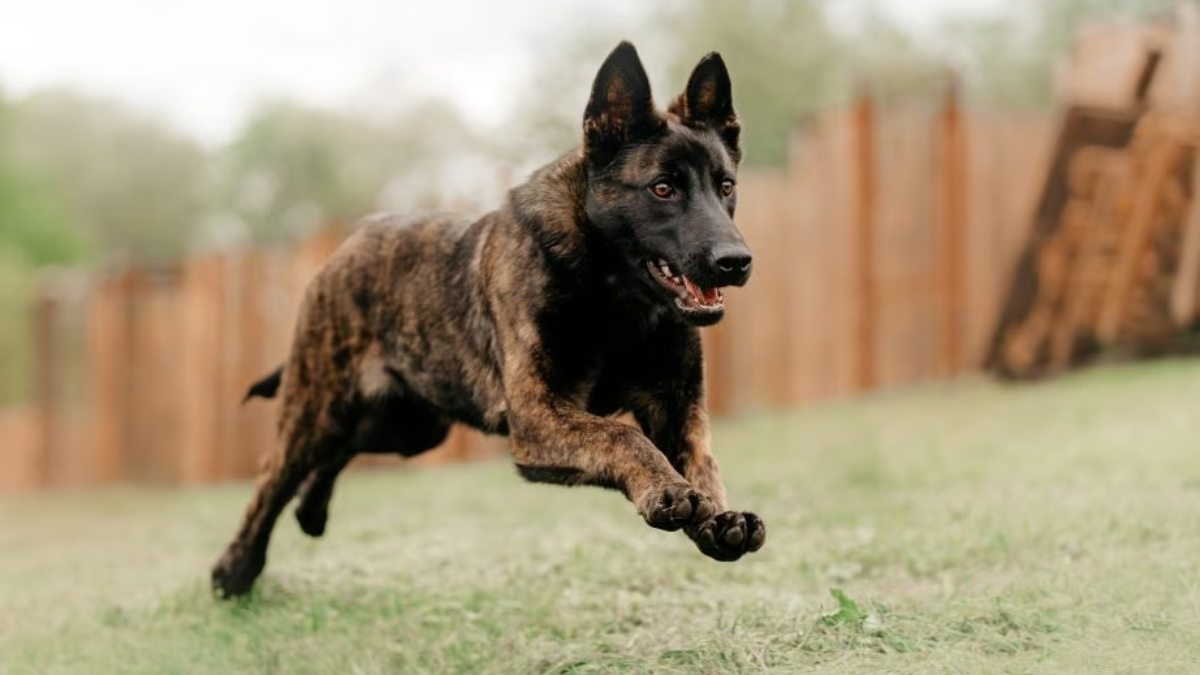
Adoption Options
Adopting a Dutch Shepherd Dog can be a great option for those who want to give a dog a second chance. Many rescue organizations specialize in Dutch Shepherds, such as the Dutch Shepherd Rescue. These organizations often have dogs of all ages, including puppies, and can provide information about the dog's temperament and health history.
It is important to note that Dutch Shepherds are a rare breed, and it may be difficult to find one available for adoption. However, checking with local animal shelters and rescue organizations is always a good place to start.
Whether you choose to buy from a breeder or adopt, it is important to make sure that the dog you choose meets the breed standard for Dutch Shepherds. This includes a strong and muscular body, a short and dense coat, and a friendly and intelligent temperament.
Breed Comparisons
Dutch Shepherd vs. German Shepherd
Dutch Shepherds and German Shepherds are two breeds that are often compared due to their similar appearances and working dog backgrounds. However, there are some distinct differences between the two breeds.
One of the most notable differences is their size. German Shepherds are typically larger and heavier than Dutch Shepherds, with males weighing between 65-90 pounds and females weighing between 50-70 pounds. Dutch Shepherds, on the other hand, are slightly smaller, with males weighing between 50-70 pounds and females weighing between 40-60 pounds.
Another difference is their coat types. German Shepherds have a double coat that is usually medium to long, while Dutch Shepherds have a short, dense coat. Both breeds shed moderately, but German Shepherds tend to shed more heavily during seasonal shedding periods.
In terms of temperament, both breeds are intelligent, loyal, and protective. However, German Shepherds are known for being more reserved and serious, while Dutch Shepherds are generally more outgoing and playful.
Dutch Shepherd vs. Belgian Shepherd
Dutch Shepherds and Belgian Shepherds are two breeds that are often compared due to their similar appearances and working dog backgrounds. However, there are some distinct differences between the two breeds.

One of the most notable differences is their coat types. Dutch Shepherds have a short, dense coat, while Belgian Shepherds have a longer, thicker coat. Belgian Shepherds also come in four distinct varieties: Groenendael, Tervuren, Malinois, and Laekenois, each with their unique coat colors and patterns.
In terms of size, Dutch Shepherds are slightly smaller than most Belgian Shepherds, with males weighing between 50-70 pounds and females weighing between 40-60 pounds. Belgian Shepherds can range in size from 40-80 pounds, depending on the variety.
Both breeds are highly intelligent, active, and trainable. However, Belgian Shepherds are known for their intense drive and energy, while Dutch Shepherds are generally more adaptable and easygoing.
Overall, each breed has its unique characteristics and strengths, making them suitable for different types of working and living environments.
Community and Resources
Clubs and Organizations
The Dutch Shepherd Dog is an active breed that requires plenty of exercise and socialization. Joining a club or organization can provide owners with valuable resources and support. The American Kennel Club (AKC) recognizes the Dutch Shepherd as a herding breed and offers events such as obedience trials, herding tests, and agility competitions.
The Dutch Shepherd Dog Club of America (DSDCA) is a national club dedicated to the preservation and promotion of the breed. The club offers a range of activities for members and their dogs, including conformation shows, obedience trials, and herding events. The DSDCA also provides educational resources and information on health issues that may affect the breed.
Online Forums and Support
Online forums and social media groups provide a platform for Dutch Shepherd owners to share information and connect with others who share their passion for the breed. The Dutch Shepherd Forum is a popular online community that offers a wealth of information on training, health, and nutrition. The forum also provides a platform for breeders and owners to connect and share their experiences.
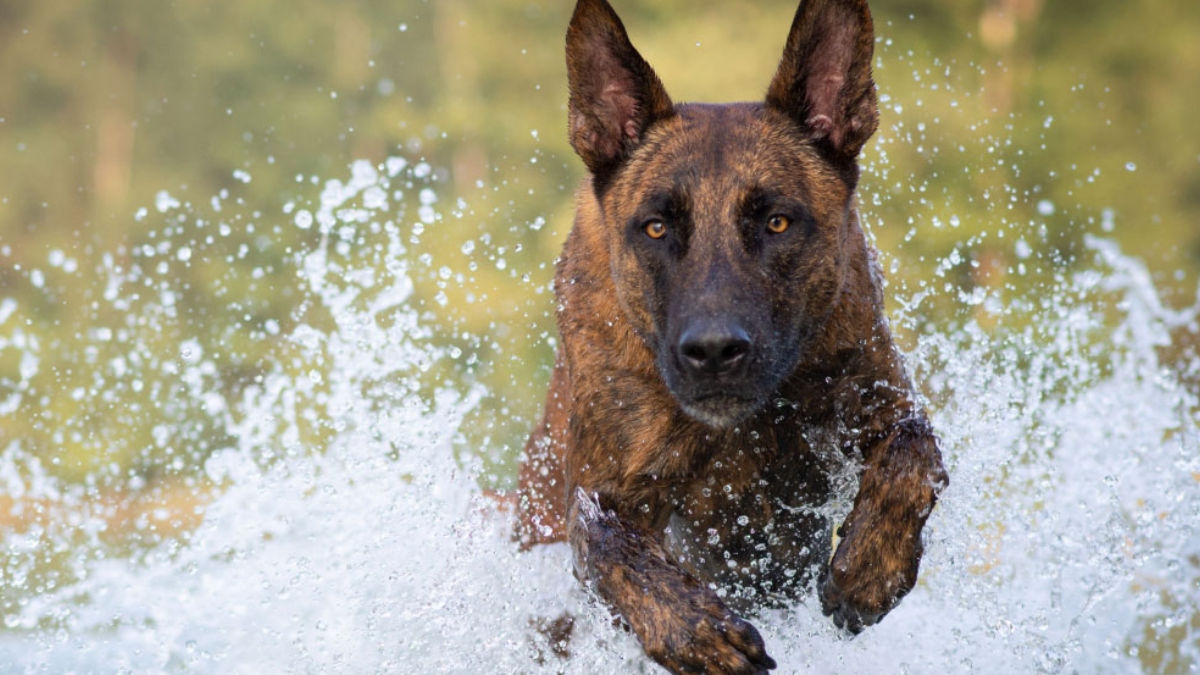
The Dutch Shepherd Owners Group on Facebook is another popular online community that provides support and resources for owners of the breed. The group has over 10,000 members and offers a platform for owners to share photos, videos, and advice on training and care.
In conclusion, joining a club or organization and participating in online communities can provide Dutch Shepherd owners with valuable resources and support. Whether you are a seasoned owner or a first-time dog owner, these resources can help you provide the best possible care for your Dutch Shepherd.
Conclusion:
In conclusion, the Dutch Shepherd Dog characteristics: embody a remarkable combination of intelligence, loyalty, and versatility. Their temperament, marked by an innate drive to work and protect, makes them ideal companions for active individuals and families. Their medium-sized frame, coupled with their agility and athleticism, allows them to excel in various activities, from herding to agility competitions. Grooming requirements are moderate, with a double coat that requires regular brushing to maintain its health and shine.
Understanding these characteristics is crucial for anyone considering adding a Dutch Shepherd Dog to their family, as it ensures a harmonious and fulfilling relationship between owner and pet. Whether as a dedicated working partner or a beloved family pet, the Dutch Shepherd Dog's unique traits make them a cherished member of any household. By embracing and appreciating their distinct qualities, owners can foster a deep bond with their Dutch Shepherd Dog, enriching both their lives and the lives of their beloved canine companion.
Frequently Asked Questions
- What are the common personality traits of Dutch Shepherd dogs?
- Dutch Shepherds are known for their intelligence, loyalty, and high energy levels. They are confident and assertive dogs, which makes them excellent watchdogs. Dutch Shepherds are also affectionate and playful with their families, but they can be reserved around strangers.
- How do the size and weight of a Dutch Shepherd vary?
- Dutch Shepherds are medium-sized dogs, with males typically weighing between 55-67 pounds and females weighing between 42-55 pounds. They stand between 22-25 inches tall at the shoulder.
- What colors are typical for Dutch Shepherd dogs?
- Dutch Shepherds come in three recognized colors: brindle, fawn, and black. Brindle is the most common color, with fawn and black being less common.
- Can Dutch Shepherds be considered good family pets?
- Dutch Shepherds can make great family pets for the right family. They are very loyal and protective of their families, but they require a lot of exercise and mental stimulation to prevent destructive behavior. They are not recommended for families with young children or elderly individuals who may not be able to handle their high energy levels.
- What is the typical behavior pattern of a Dutch Shepherd?
- Dutch Shepherds are very active, intelligent, and independent dogs. They can be trained to do a variety of tasks, including search and rescue, police work, and agility competitions. They require a lot of exercise and mental stimulation to prevent destructive behavior.
- Are Dutch Shepherds prone to excessive barking?
- Dutch Shepherds are vocal dogs and may bark to alert their families of potential threats. However, excessive barking can be a sign of boredom or anxiety and should be addressed through proper exercise and training.




